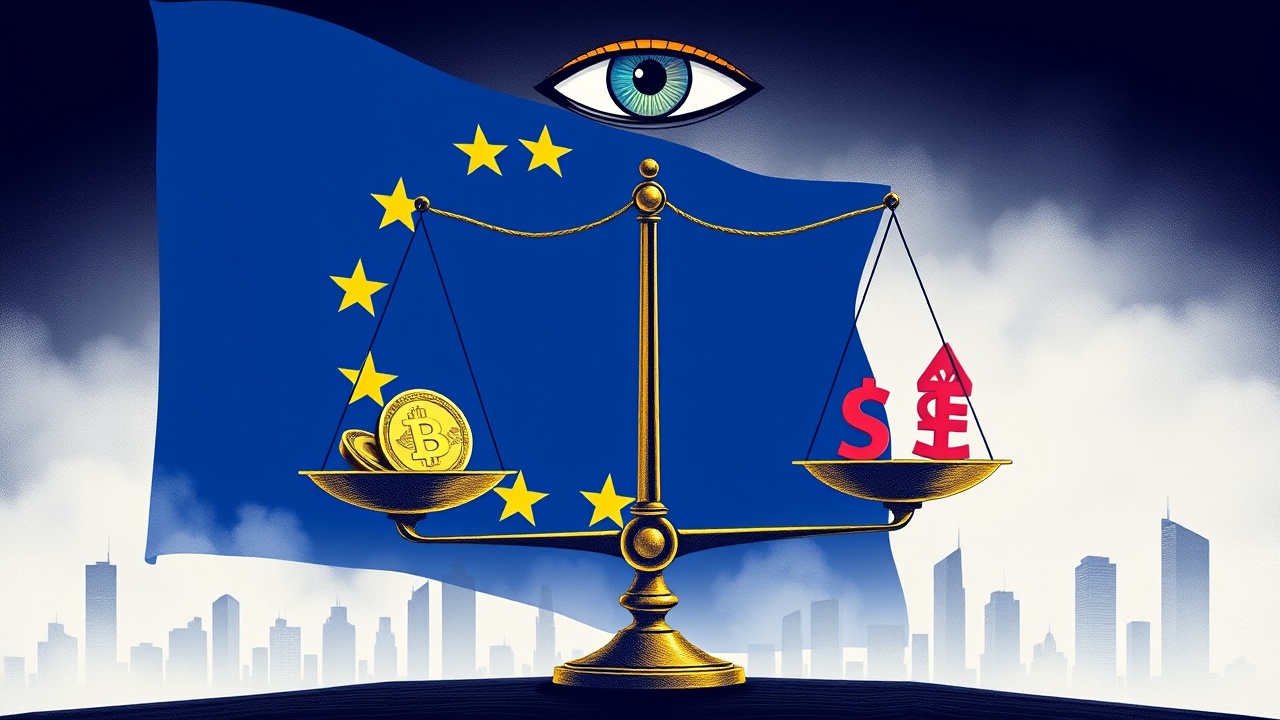Brussels Explores Financial Regulation Shift
Brussels is exploring a significant shift in financial regulation, aiming to adopt a model similar to that of Wall Street to better manage cryptocurrency exchanges and trading platforms throughout the European Union. A recent report by the Financial Times reveals that the European Commission intends to enhance the capabilities of the European Securities and Markets Authority (ESMA) by proposing direct regulation for essential cross-border financial entities such as stock exchanges, cryptocurrency companies, and clearinghouses.
Market Integration Package
Expected to be unveiled in December, this draft proposal is a crucial component of a broader “Market Integration Package,” which seeks to streamline capital markets and alleviate the inconsistent regulatory landscape currently faced by member states. Once this initiative progresses, ESMA could take charge in managing international disputes, render binding decisions, and supervise numerous key cryptocurrency and trading firms within the EU.
Inspiration from the U.S. SEC
This proposed restructuring draws inspiration from the operational framework of the U.S. Securities and Exchange Commission (SEC) and represents a major effort by the EU to consolidate financial oversight, aiming to resolve longstanding issues of market fragmentation. The European Commission is actively considering various supervisory models that could offer unified oversight while incorporating local expertise, particularly concerning vital financial infrastructure such as trading venues, central securities depositories, and large, cross-border investment firms.
Support from Key Figures
Christine Lagarde, President of the European Central Bank, has expressed strong support for completing the “capital markets union” and has underscored the necessity of establishing an effective regulator endowed with substantial enforcement authority to mitigate systemic risks. During a recent address at the European Banking Congress, Lagarde advocated for the creation of a “European SEC,” emphasizing that empowering ESMA with direct supervisory capabilities is key to managing potential risks from large cross-border financial players and central market infrastructures.
Concerns from Stakeholders
Not all stakeholders are aligned with the Commission’s proposed direction, however. Some regulators, particularly from smaller nations with robust financial sectors, have raised concerns that a central supervisory body may not advocate for their interests. Officials from Luxembourg and Dublin have expressed reservations, arguing that such a framework could disadvantage smaller markets and grant disproportionate influence to larger member states. Luxembourg’s finance minister, Gilles Roth, specifically advocated for convergence in supervisory practices instead of establishing a potentially costly and ineffective centralized authority.
Industry Perspectives
In addition to regulators, representatives from the cryptocurrency industry have also voiced apprehensions. Marin Capelle, a policy advisor from the European Fund and Asset Management Association (Efama), cautioned that an expanded role for ESMA would likely lead to increased compliance costs, which in turn would raise operational expenses across the industry.
Support for Centralized Oversight
Interestingly, the Banque de France has already shown support for centralizing cryptocurrency market oversight under ESMA. Governor François Villeroy de Galhau noted that this approach would bolster regulatory enforcement and help mitigate the risk of regulatory arbitrage, particularly concerning stablecoins that are issued within and outside the EU. Other countries, including Austria and Italy, have also rallied behind the notion of granting ESMA more direct supervisory authority.




